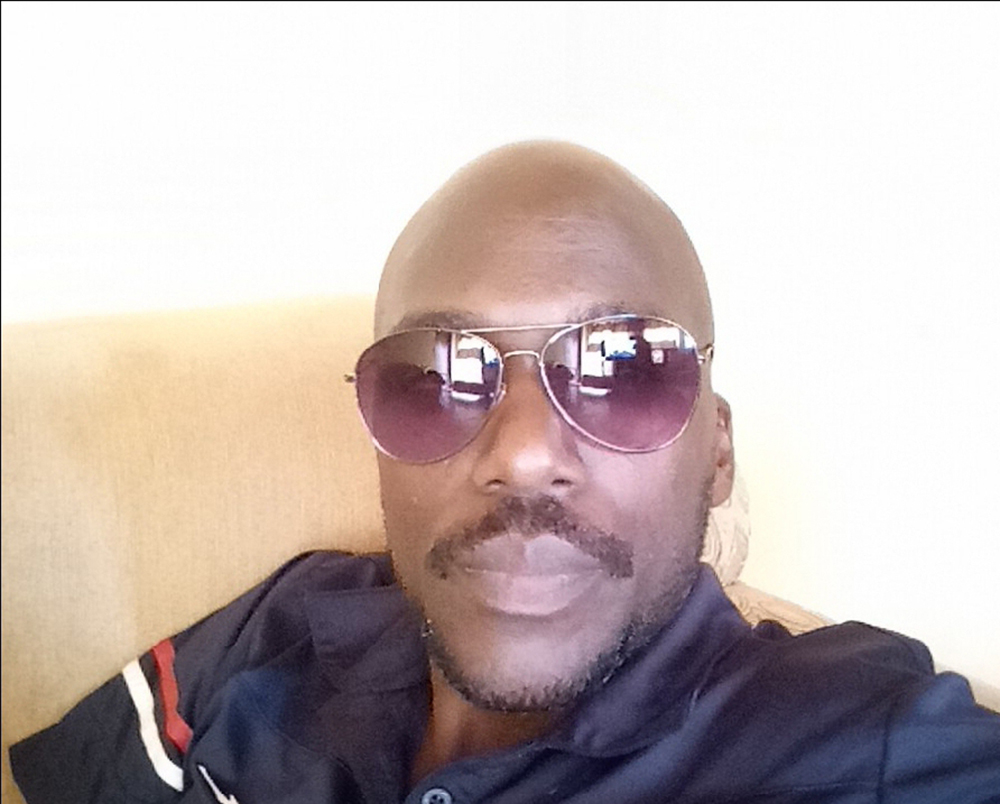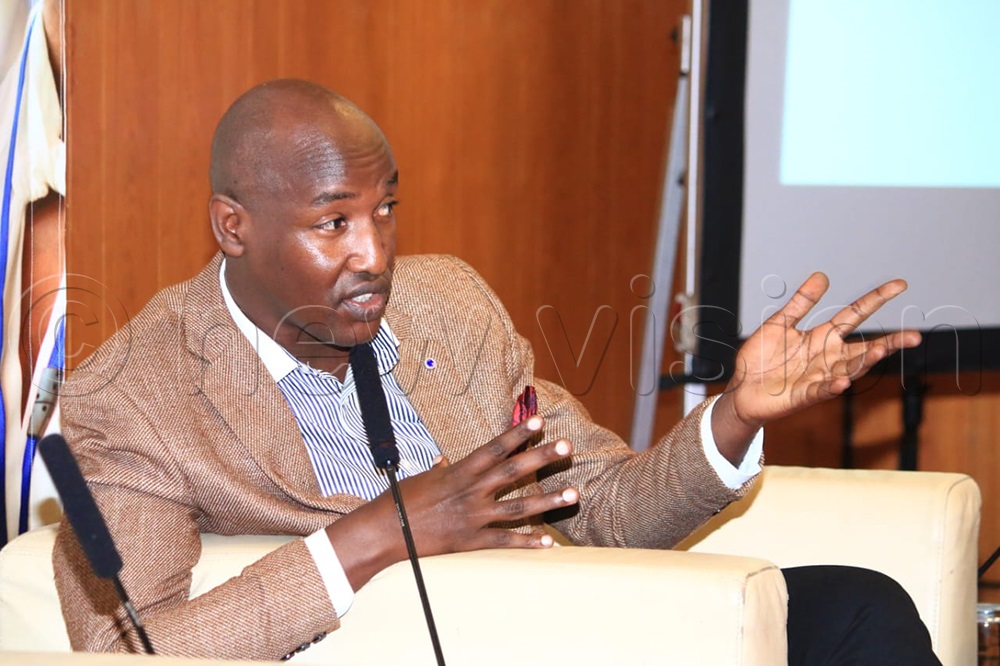PSFU calls for stronger branding to elevate Uganda's textile sector
Stephen Asiimwe, the executive director of PSFU, emphasised the importance of branding, identity, and innovation to enhance Uganda’s local textile and leather industries.
Stephen Asiimwe, the executive director of PSFU (right) pointed out that the fashion and textile sector is one of the largest industries globally, yet Uganda’s presence in this market remains underdeveloped. (Photo by Alfred Ochwo)

Jeff Andrew Lule
Journalist @New Vision
________________
The textile, apparel, and fashion sector continues to face significant challenges in penetrating the global market, primarily due to issues with product quality and limited brand recognition.
However, key stakeholders, including the Private Sector Foundation Uganda (PSFU), have partnered to address these hurdles and create a thriving industry that can compete on a global scale.
Stephen Asiimwe, the executive director of PSFU, emphasised the importance of branding, identity, and innovation to enhance Uganda’s local textile and leather industries.
Faith Aweko showing off one of the bags made out of used recycled polythene. (All Photos by Alfred Ochwo)
He pointed out that the fashion and textile sector is one of the largest industries globally, yet Uganda’s presence in this market remains underdeveloped.
While officiating at the Textile Apparel and Leather Forum (TALIF) 2025 at Serena Hotel in Kampala on April 17, 2025, Asiimwe encouraged local producers to leverage their unique cultural identities, such as the iconic Gomesi, Mshanana, and Kanzu, to develop strong, recognisable brands.
The event, which brought together key players and stakeholders from the textile, apparel, and leather sectors, was held under the theme: “Fostering Synergies in the African Textile and Leather Industry.”
Asiimwe stressed that by redefining and improving the quality of these products, Uganda can attract international consumers worldwide, ultimately boosting foreign exchange.
He also advocated for supporting micro and small businesses by providing access to capital, tax holidays, and a favourable business environment to foster growth.
Asiimwe cited PSFU’s initiatives, such as the GROW programme, aimed at creating job opportunities and empowering women in various sectors.
He added that PSFU is also working on programmes like the Investment for Industrial Transformation and Employment (INVITE) to support local businesses exporting products.

Gashegu Muramira, the Executive Director, African Integration Think Tank (AFITT).
He noted that by focusing on building strong brands, improving product quality, and fostering a supportive ecosystem for startups, there is significant potential for growth in the sector.
He highlighted Nigeria's local textile, apparel, and fashion industry, which is valued at around $4.7 billion, making it the largest in Africa.
Asiimwe emphasised that Uganda can also tap into this sector to create more jobs, provided it focuses on producing quality products and building strong brands.
The apparel sector in the textile industry employs at least 2.5 million Ugandans (7.8%), mostly women and youth, across the value chain, while the leather industry is also seeing growth.
Asiimwe noted that an estimated one million people are already employed in the Gomesi industry.
"That is our brand identity. If you were in Sydney and saw a woman wearing a Gomesi, what would be your first thought? That person is from Uganda. That’s brand identity. But how many people actually wear it to the office? If you wore a Gomesi in an office setting, they would probably think you are traditional. People only wear it on special occasions, but should it only be reserved for special occasions when it is part of our identity?" he remarked.
He also stressed the importance of building a community of brand ambassadors and collaborating with influencers who align with the brand’s values.
He pointed out that West Africans have successfully made their local apparel popular, now embraced across the continent, and have provided employment for many youths.
“With the right investments in innovation, marketing, and policy reforms, Uganda’s textile and leather industries could become key drivers of economic development and job creation,” he added.

Stephen Asiimwe speaking during the event.
Gashegu Muramira, the executive director of the African Integration Think Tank (AFITT), addressed the gap between the public and private sectors, which hinders the growth of the textiles and leather industry.
He emphasised the need for policy reforms to promote the textiles and leather sector and improve infrastructure, particularly in the hides and skins sector.
Muramira also highlighted the importance of shifting mindsets within local communities, encouraging the adoption of locally made products over imported goods.
Daniel Kazibwe, a PSFU board member representing the Culture and Creative Arts sector, underscored the need for better branding and marketing of local products.
He noted that while Uganda produces quality textiles and leather goods, the finishing and branding often fall short, preventing the products from standing out in international markets.
Karen Uwera, the chief executive officer of ACHIEVAZ Ltd, discussed the potential of the creative industry in driving economic growth and creating employment, especially among the youth.
She encouraged African investors to look inward and invest in local production to build sustainable supply chains.
She also highlighted the role of platforms like the Textile, Apparel, and Leather Investment Forum (TALIF) 2025 in connecting investors and stakeholders to drive industry growth.
The founder of Reform Africa, Faith Aweko, shared the challenges her company faces in marketing recycled products made from polythene bags.
Despite the high production costs, she explained that consumer reluctance to embrace recycled goods remains a significant barrier.
She urged stakeholders to work on changing consumer perceptions and educating the market about the environmental benefits of using recycled materials.
Agnes Kitumba, the CEO of Arise Collections Ltd, also acknowledged the difficulties in convincing Ugandans to purchase locally made goods.
She pointed out the consumer preference for expensive imported items, such as those from Dubai, and emphasised the need for more awareness campaigns to encourage the support of local businesses.